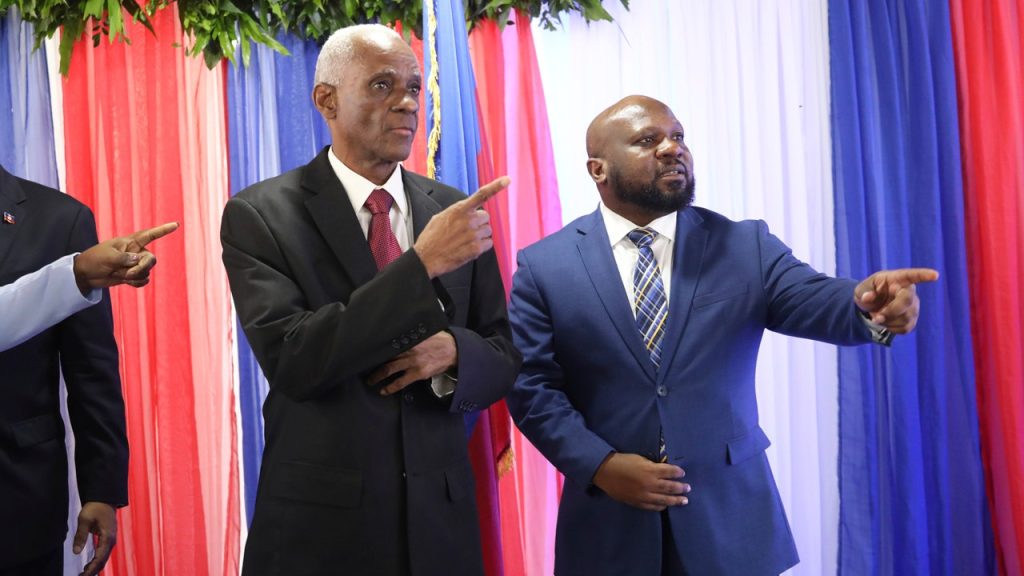A surprise announcement revealed that the new prime minister of Haiti had been chosen by a recent transitional council tasked with selecting new leaders for the country. Fritz Bélizaire, a former sports minister, was chosen by four out of seven council members with voting power, creating unexpected political alliances and causing confusion among Haitians. Some council members are now considering fighting the decision or resigning due to the violation of the council’s political accord.
This move has caused tension within the council, as rumors surfaced claiming that certain members were behind the nomination of Bélizaire. The political group Montana Accord denounced this “complot” as an effort by four council members to take control of the government and continue with corrupt practices. The prime minister selection process has caused concern among the Haitian people, as the country faces ongoing gang violence that is escalating in Port-au-Prince and beyond.
The Fanmi Lavalas party criticized the new prime minister selection as a conspiracy to maintain the power of certain groups and perpetuate corruption. The council members supporting Bélizaire have formed a majority bloc and committed to making decisions by consensus, while individuals representing various political parties are behind the controversial choice. Some residents of Haiti are skeptical of the council’s decision-making process, as many members are long-time politicians with questionable pasts.
Haitian politics have been characterized by secrecy and shifting alliances, leading to concerns about further instability amidst the violence gripping the country. Gangs have been launching coordinated attacks, burning police stations, and releasing thousands of inmates from prisons. With ongoing chaos and insecurity, Haitians are demanding that security be a top priority for the council, which is responsible for selecting new leaders and preparing for general elections.
Critics have pointed out that some of the council members represent parties that have contributed to the current state of crisis in Haiti. Despite calls for change and reform, the same political currents have dominated decision-making processes, raising doubts about the council’s ability to address the country’s challenges effectively. The escalating violence and rising death toll in Haiti underscore the urgency of addressing the systemic issues that have led to widespread instability.
As tensions rise and divisions within the council become apparent, Haitians are growing increasingly wary of the direction in which the country is headed. The high levels of violence and insecurity have led to a mass exodus of residents fleeing the capital, highlighting the urgent need for strong leadership and decisive action to address the root causes of the crisis. The future of Haiti hangs in the balance as political factions vie for power and struggle to navigate the complex web of challenges facing the country.













